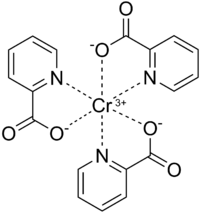
Sharing of Antimicrobial Resistance Genes between Humans and Food Animals
Sign Up to like & getrecommendations! Published in 2022 at "mSystems"
DOI: 10.1128/msystems.00775-22
Abstract: Antimicrobial resistance (AMR) has proven to be a global public health concern. To conquer this increasingly worrying trend, an overarching, One Health approach has been used that brings together different sectors, but the fundamental knowledge… read more here.
Keywords: health; food; food animals; antimicrobial resistance ... See more keywords

Exploring the Bacteriome and Resistome of Humans and Food-Producing Animals in Brazil
Sign Up to like & getrecommendations! Published in 2022 at "Microbiology Spectrum"
DOI: 10.1128/spectrum.00565-22
Abstract: Humans and food production animals have been reported to be important reservoirs of antimicrobial resistance (AMR) genes (ARGs). The frequency of these multidrug-resistant (MDR) bacteria tends to be higher in low- and middle-income countries (LMICs),… read more here.
Keywords: producing animals; food; food producing; antimicrobial resistance ... See more keywords

Insights from targeting transferrin receptors to develop vaccines for pathogens of humans and food production animals
Sign Up to like & getrecommendations! Published in 2023 at "Frontiers in Cellular and Infection Microbiology"
DOI: 10.3389/fcimb.2022.1083090
Abstract: While developing vaccines targeting surface transferrin receptor proteins in Gram-negative pathogens of humans and food production animals, the common features derived from their evolutionary origins has provided us with insights on how improvements could be… read more here.
Keywords: transferrin; production animals; food production; humans food ... See more keywords

Snapshot Study of Whole Genome Sequences of Escherichia coli from Healthy Companion Animals, Livestock, Wildlife, Humans and Food in Italy
Sign Up to like & getrecommendations! Published in 2020 at "Antibiotics"
DOI: 10.3390/antibiotics9110782
Abstract: Animals, humans and food are all interconnected sources of antimicrobial resistance (AMR), allowing extensive and rapid exchange of AMR bacteria and genes. Whole genome sequencing (WGS) was used to characterize 279 Escherichia coli isolates obtained… read more here.
Keywords: companion animals; whole genome; escherichia coli; humans food ... See more keywords